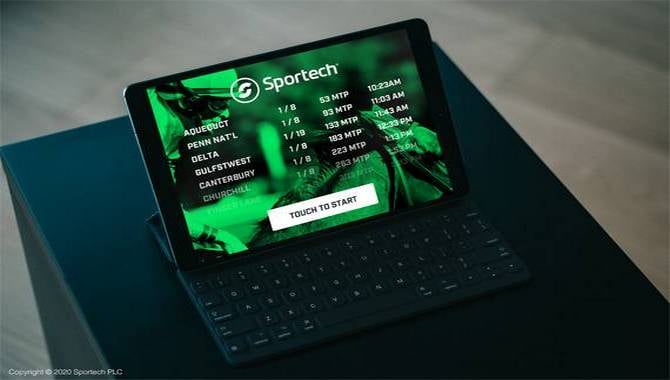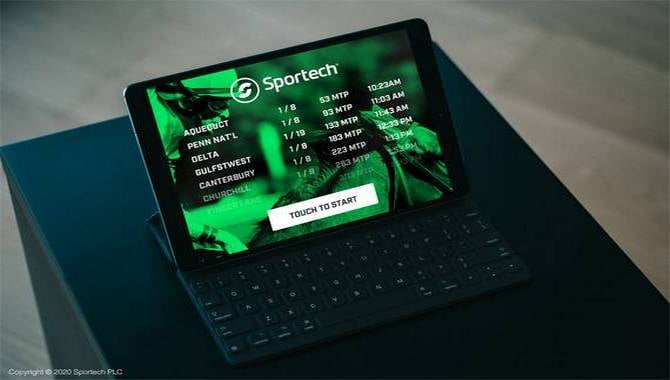
What’s the current breakdown of Sportech’s revenue, geographically and by sector?
The breakdown from an industry perspective is about half our revenue comes from what we call our racing and digital business; that is about £36m ($42.2m) last year – through the provision of tote services and digital betting services, as well as our Bump 50:50 revenue. And then about £28m of that business comes from our venues, through our exclusive pari-mutuel racing license in the state of Connecticut.
Geographically, at the moment it’s mostly US revenue. Most of our horseracing customers are in the US market; we also do business with lottery in the Dominican Republic and have our UK and European businesses. Our business is probably two thirds dominated by the US market.
Do you see this breakdown changing long term?
It varies somewhat on the nature of the business we’ll be able to grow into. One of the things we’re looking to expand is sports betting, which we wanted to do mainly through licenses in the state of Connecticut. The Connecticut legislator is currently reviewing sports betting legislation and the Government came out favourably about Sportech getting one of those licenses. Obviously, with everything that’s been going on, the legislative sessions have been halted completely.
Otherwise, we are looking to continue to expand our international capabilities and our digital offering. We’re looking to expand into the French market and we continue to look at how to expand in those kinds of markets. We’ll look at expansion in the US and Europe around tote customer and digital perspective. But really that’s around how to change their operational focus from the traditional betting terminal, to more of a better digital offering. We think that’s where the market will really continue to have opportunity.
It’s been stated the coronavirus pandemic is affecting all Sportech’s business segments. How much more could EBITDA forecasts be reduced by if sporting postponements last beyond June 2020?
As you can imagine, most of our businesses require the operation of either horseracing and/or sporting events, which have been significantly curtailed in the current environment. The one big traffic still going is from the Hong Kong Jockey Club, where we have generated significant revenue from. They are actually on the backend of the COVID-19 pandemic and starting to let people back in after having racing behind closed doors.
For us, one of the things we’ve done is put in place a war room type situation, for lack of a better term, where we sit down and assess things on a weekly basis. Most tracks are running behind closed doors and require customers to bet digitally. But, yes, obviously if this extends past June, we would continue to see revenue fall in that timeframe. We will eke out an available line of credit and assess which payments can come in to have enough available cash flow. So we’re getting there and working on every available opportunity.
Do you envisage Sportech’s share price increasing once the industry comes out the other side of the coronavirus pandemic? The market is obviously at a low now but Sportech’s share value had also fallen beforehand.
I don’t think you’d ever talk to a CEO or CFO who doesn’t want to increase the stock price. But I think the work done in 2019 and restructuring the business a bit, all the work we’re doing from a technology perspective, is showing people we can improve operating cash flow. Over time, we are making the business a better and more focused business. A business that is less industrial and more digital. And I think if we can do those things, investors will be pleased with what we’ve been able to put together.
We’re moving our business into the 21st century and if we do that well, I’d hope we’re rewarded for that. I think the stock price today reflects the uncertainty about our ability to go through that process. So the more and more we can do that and demonstrate we’re successful at doing that, investors will be happy with that, especially if we can take those revenue capabilities and convert more of that revenue to cash.
How has the transition been since Richard Maguire’s appointment as CEO in July 2019?
As part of that, Richard obviously comes from a financial background. You aim to put together a good team on the executive side – people who have a deep knowledge of operation. I have a lot of operational background and so do others in the team. We try to make sure we work together as a team on all the operational activities; Richard’s been in the business a long time and has a good idea of what we’re going to do to grow the business. Like all people who get deeper and deeper into the operational side, I think they realise there’s a lot more parts than they could have imagined in an operating business.
But there are a lot of good people in our business who’ve been in this industry for a long time. They are quite open minded about how to evolve the business and that’s key. You want to engage your staff, who are on the front lines every day. What do they see that we could be doing? So a lot of the conversations we’ve been having are about how to go from the old big terminal style to a more tablet or digitalised way. A lot of that we’ve gauged from the field, where people have come up with a lot of ideas about how to have a more digitalised and less-capital intensive business. Richard’s done a good job of engaging people in that process.



